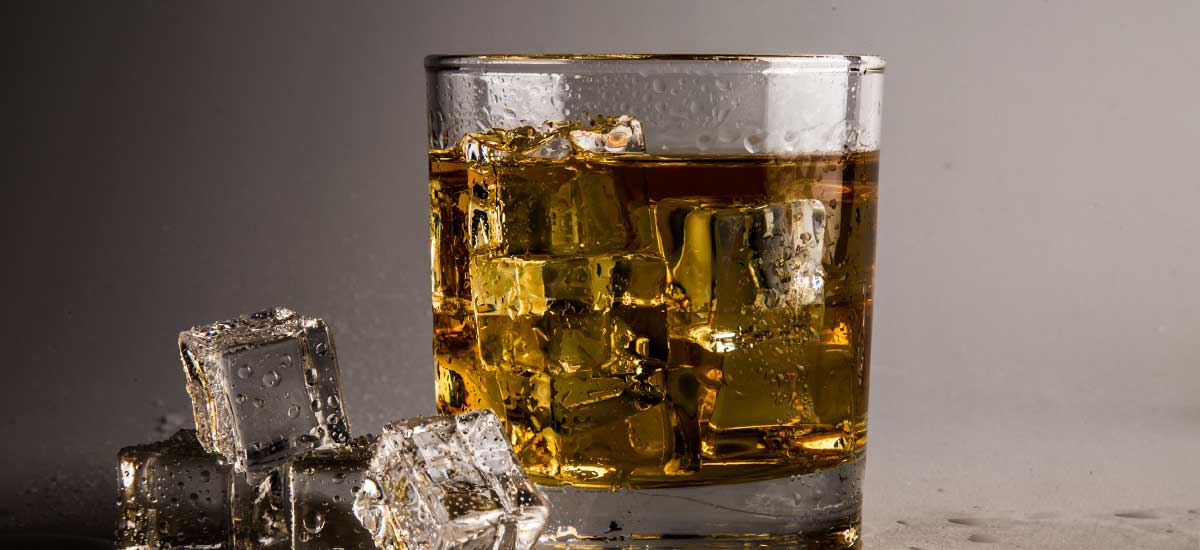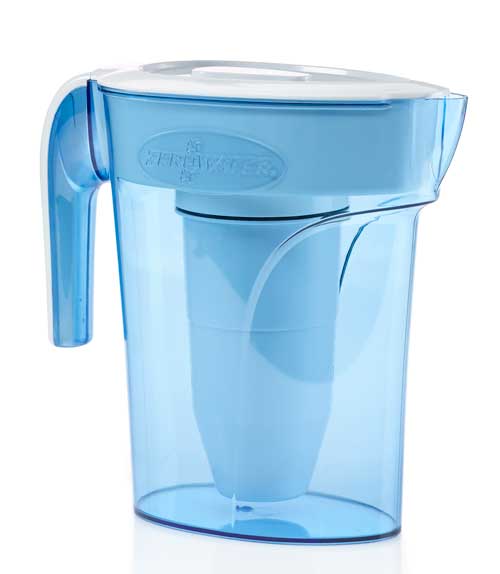How Valuable is that Drop of Cube in your Whiskey?
You’ve spent your hard-earned money on that bottle of whiskey. You want to really enjoy the experience as the Master Distiller intended. You want to open up the hidden flavors, so you add a bit of water or ice. If you’re adding ice, maybe you’ve got one of those fancy ice ball molds.

You’ve spent your hard-earned money on that bottle of whiskey. You want to really enjoy the experience as the Master Distiller intended. You want to open up the hidden flavors, so you add a bit of water or ice. If you’re adding ice, maybe you’ve got one of those fancy ice ball molds. Spheres are all the rage now. Plus, using fancy molded ice sure beats breaking your teeth on whiskey stones!
Before you add a splash or some rocks to your whiskey, have you given any thought to the water you’re using?
Water impurities can interact with your whiskey and change the flavor. Too much dissolved solids, chemicals, or mineral content in the water leaves you tasting something other than water, and that will leave you tasting something other than whiskey.
The solution is to use “pure” water. There are a few ways you can go about it. You could always go to the grocery store and pick up some fancy plastic bottle of purified or reverse-osmosis water, then bring it home and store it. There are a few problems with that, though. There’s the whole going to the store thing that is just unappealing. Then, there’s the fact that water, stored long enough, goes stale. How long has that gallon of opened purified water been sitting on your shelf? If you don’t know, then the answer is, “Too long.” Finally, there’s now more plastic you have to put in the recycle bin.
It is simply easier and more efficient to have some sort of water filtration system in place. You can have them built-in, you can attach one to your faucet, or you can get a water filtration pitcher. Personally, I prefer the pitcher because you can take it anywhere (including the campfire).

discovered not all water filtration pitchers are created equal. In full disclosure, I was recently provided a ZeroWater 6-cup Pitcher to review. I’ve been using a Brita filtration pitcher that I had purchased on my own now for several months, and it performs nicely, or at least I thought it did.
I had a very recent opportunity to test both pitchers under unexpected conditions due to a new faucet being installed in our kitchen. The old faucet had metal lines, and the replacement had plastic. The water from the new faucet is less than great.
The ZeroWater pitcher took that taste right out, and I was left with softer, pure water. There’s no flavor or taste at all, it is just water, which incidentally, is exactly what you want for adding to your whiskey.
The Brita pitcher also did fine, but it didn’t leave the water tasteless. My wife suggested she preferred the Brita because it left some flavor to the water and that’s what we were used to. I agreed with her and understand where that quality can be desirable – if I’m not adding water to my whiskey.
ZeroWater uses a 5-stage ion-technology filtration system to remove impurities from tap water. Brita uses a 2-stage carbon filtration system. Side by side, when I filled the same amount of tap water in each, the Brita pitcher filters the water much faster than the ZeroWater. The first time I used it, I thought maybe there was a cap or sticker that I failed to remove from the filter. Since then, I found when I pour water into the pitcher, I just walk away for a few minutes. Yes, it does take that long for six cups of water to make it through. The result, however, is clean, pure water, which I believe is worth the wait.
ZeroWater’s website claims their filter removes 99% of inorganics (chlorine, fluoride, etc), 98% of metals and 99% of pesticides, and compares it to their claim of Brita’s 44%, 88%, and 69% respectively. I visited Brita’s website to learn what their claims were, but only found information as to the types of impurities filtered, not the percentages.
The ZeroWater 6-cup Pitcher is a very affordable option at $19.99. When you factor in the convenience of not having to stock purified water, it becomes very attractive as well. ZeroWater does offer 8-, 10-, 12- and 23-cup options. For my bar, the 6-cup is more than adequate.
So, go ahead and add water or ice to your whiskey. Just make sure you’re using the best water possible. Cheers!
Disclaimer: Special thanks to ZeroWater for providing Bourbon & Banter with a sample of their product for review. We appreciate their generosity and for allowing us to share our experience and thoughts with no strings attached.
